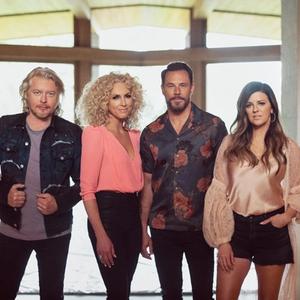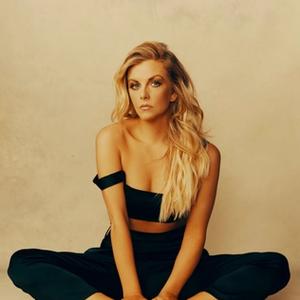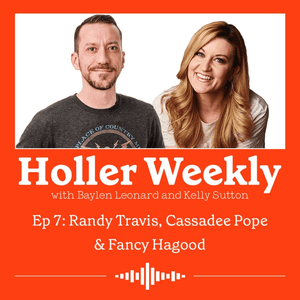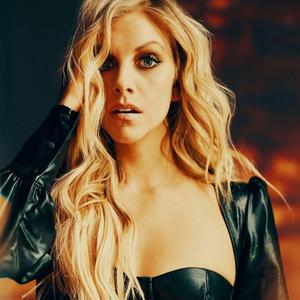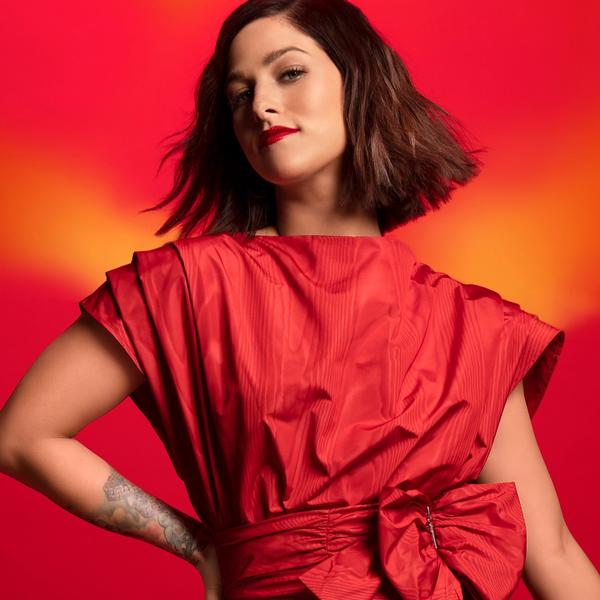




Link copied

Cassadee Pope is settled up alongside her two dogs, happily putting off a workout for as long as foreseeably possible. The Florida-turned-Tennessee native has been living within her self-declared “germ bubble” for the past year with her boyfriend Sam Palladio (the British singer-songwriter of Nashville fame), while still being able to see most of her immediate family, who live nearby within Music City. The singer seems cosy and content - something that she’ll agree has taken many years for her to find; particularly through the intensity and isolation of 2020. Having consistently battled with her mental health, the time left to ruminate in this past year forced Pope into self-reflection. It was her work, inside and outside of music, that pulled her from such deep introspection – driving her instead to become an advocate for change in the midst of the deep unrest that tore through the United States and the world.
It’s been a busy week. Her brand new single, the country-punk anthem ‘What the Stars See’, has quickly certified itself as a highlight of her creative output so far; a rasping and powerful collaboration that could sit comfortably in the discographies of either of its two contributing guests – Little Big Town’s chief Karen Fairchild and the incomparable Lindsay Ell. Yet let it be said, this is undoubtedly Pope’s project – her creativity evolving from reflection, grief and self-acceptance. Previously, Pope’s desire to achieve success within the restrictive expectations of country music would stifle her love for experimenting with what’s possible. Nevertheless, having found fortune within the neon lights and pop sensibilities of her 2019 record stages, Pope, at least from the outside, seemed unafraid to rip up the rule book. Following the record up with a tender, intimate collection of songs entitled Rise and Shine, she showcased a vulnerability previously hidden within her work. It shouldn’t come as a surprise that she's guided herself towards this new, encompassing sound – but what is surprising is that it's only now that she’s truly exploring what makes her happy artistically, on her own terms.
Not even Pope knows where this all leads quite yet – such freedom and spontaneity leaves her in a pretty exciting position. Right now, she’s embracing the opportunity to combine her two loves: the heavier punch of pop-punk with the pure honesty and compelling nature of a big country song. If ‘What the Stars See’ is any example, Pope is surely set to find even more success, and the sort of creative fulfilment her heroes and friends Fairchild and Ell have established - each in their own unique way.

While everything is somewhat getting back to normal, it still feels important to ask - how have you been keeping?
I feel like if it weren't for songwriting last year, it would have been really difficult. I couldn't tour, we couldn't travel, Sam couldn’t see his family and I couldn't really see most of mine – so still having that sliver of creativity to partake in was key. I don’t know if I would’ve written a lot of the songs that I did if it had been in any other circumstance, just because of the mental gymnastics I had to deal with as far as reflecting, having the time to sit and think about the past and things that shaped me. I thought a lot about what was awful about my past and amazing about my present, and really let myself see the big picture.
I imagine it was a fairly stressful process to put yourself through to reach that outcome?
It was, just because of all of the therapy and the mental health work that I've done over the last few years. Actually, funnily enough, I went on a therapy retreat in January of 2020. One of the things they was that isolation isn't a good coping mechanism; then 2020 happened and I thought, "Oh, this is not good – a lot of people are going to suffer right now because they don't have that human connection”. There were moments where I felt a little overwhelmed by all the reflecting. But then I finally found the thing I wanted to say in the songs – that I was allowed to feel bad for myself. I thought, “That person did that thing to you and that wasn't cool – you’re okay to feel sad about it”. Whereas before, I might’ve thought, “I should’ve known better - I shouldn't have trusted that person”. There was some grieving, which was really healing for me to do. It was just a weird thing to navigate because some days you feel great and other days you’re asking, “What is happening?” When the unrest around the world began, I couldn't look away anymore. That was a big shift for me, in my heart and in my life. There's a lot of things that shifted within me in this last year that I wouldn't change - I'm a better person for it now.
So do you think you would’ve reached this state of mind artistically if you hadn't had this time?
I don't think so. I think I might have come to the decision that I wanted to blend pop-punk with country, but I don't know if the subject matter would have been as deep or revealing. I also don’t know if I would’ve learnt or educated myself on systemic racism and everything surrounding it. I've just been in my own shit for my whole life and been in my bubble of privilege – I’ve been comfortable, whereas anti-racism work is very uncomfortable. It’s kind of embarrassing to admit that I don’t know if I would’ve gotten here, but that's just reality.
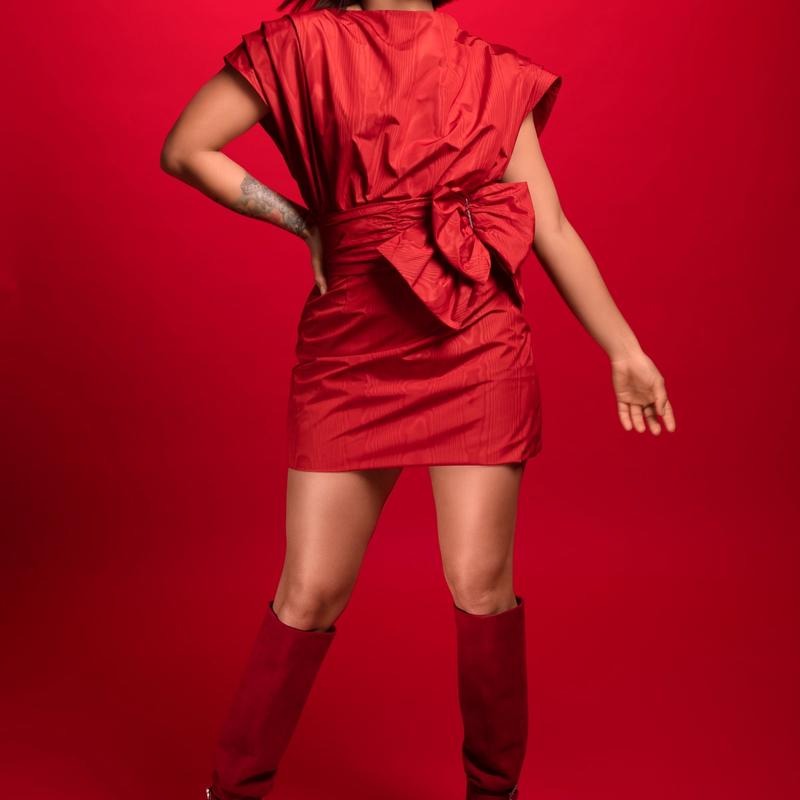
Cassadee Pope
That’s very honest, and that’s refreshing – even in 2021. We need to acknowledge that we haven't done enough. As much as we can sit here and say we don't agree with racism, in 2021 that's just not going to cut it.
The thing that that made me laugh was hearing everyone say, “Thank god 2020 is over”. It's not like 2021 is miraculously going to be this amazing year where everything's fixed. There’s still so much grief and confusion from the jolt we felt last year, it's still below us. The work doesn't stop – we have to keep working and taking responsibility for things. I see a lot of people saying, “It’s not my problem”. When you really learn about the history of this country and the world, you realise you need to step up and use your privilege to help. There are so many things that 2020 did for all of us - it either made you an activist and an advocate for people who have been marginalised, or it put you more in your privilege and a furthered your belief in white fragility.
How do you feel this has been reacted to within the country music industry and community? The behaviour and actions of Morgan Wallen drove you to speak out and comment, but that received backlash.
I think that speaking out is a good thing to do – the reason I felt comfortable doing so is because I'm doing a lot of work privately, but I still have a lot to learn and unlearn. I have had my foot in my mouth many times through this process of anti-racism work over the past year, but I think being a country artist and speaking out about that situation was important to me. Yes, it definitely got backlash, but I put my foot in my mouth by saying that this doesn't represent all of country music. Afterwards, I spoke with Andrea Williams, a Black journalist whose husband’s been a producer here for years and hasn't had luck infiltrating the industry, and friends who are people of colour. They said we get what you're saying, but what you're doing is diminishing a Black person's experience in country music by suggesting it's not all like this.
I was saying, “I'm an ally, we're not all like this” and that was self-serving without meaning to be. It’s moments like these that I think everybody is so afraid of stepping into, but that is an essential part of this work. I'm a white person trying to learn about this history that is hundreds and hundreds of years old, I'm going to get it wrong. I don't ever want to say anything publicly that hurts or damages the movement, but if I do, I want to be held accountable. I want to know where I went wrong and never do that again.
I think that's what deters people from doing the work; the fear of saying the wrong thing, as in “I'm afraid that I'm going to get in trouble”. That’s a fair fear, but you’ve got to step into it, lift up the Black voices that live this and give them the space to speak on it, before you insert yourself. I've inserted myself into such a situation way too fast a few times. The events surrounding Morgan Wallen were an example of a time where I should have sat back and looked at what people were saying, before speaking on it myself. At the end of the day, he's a symptom of a disease that's in this world – and while I didn't say it perfectly, I’m glad I'm one of the people that spoke out.
So from within our own personal positions of privilege, what can we do to action change?
I think if somebody wants to learn and wants to become an anti-racist, then then they'll do it. If someone doesn't want to, and they think getting sober is going to stop their racial slur outbursts, they're not going to fix it. What I'm doing and trying to be mindful of is the people I'm hiring, I'm really trying to ensure diversity, inclusion and equity. I think the more people do that, the better it will get. My guitar player is Asian American, and we just did a show in New York City - seeing his discomfort and fear of going to New York City because of all the Asian hate crimes taking place broke my heart. I then questioned why it took somebody I care about being so fearful to make me realise that I need to know more about this. It's relational unfortunately, but it shouldn't be, and I'm trying to get better at that.
I’m just making sure every aspect of my career is more inclusive, so for example when festivals are a thing again, just making sure I’m asking, “Have you booked artists of colour? Are you being inclusive?”, making sure that I'm challenging people to be better at it. That’s a work in progress - I'm still at the beginning stages of that, but it’s putting it into action and not making it performative - like a post on social media. Actively incorporating that into your career in every aspect is a way that that you can personally help and ensure it's not tokenism or that it’s transactional.
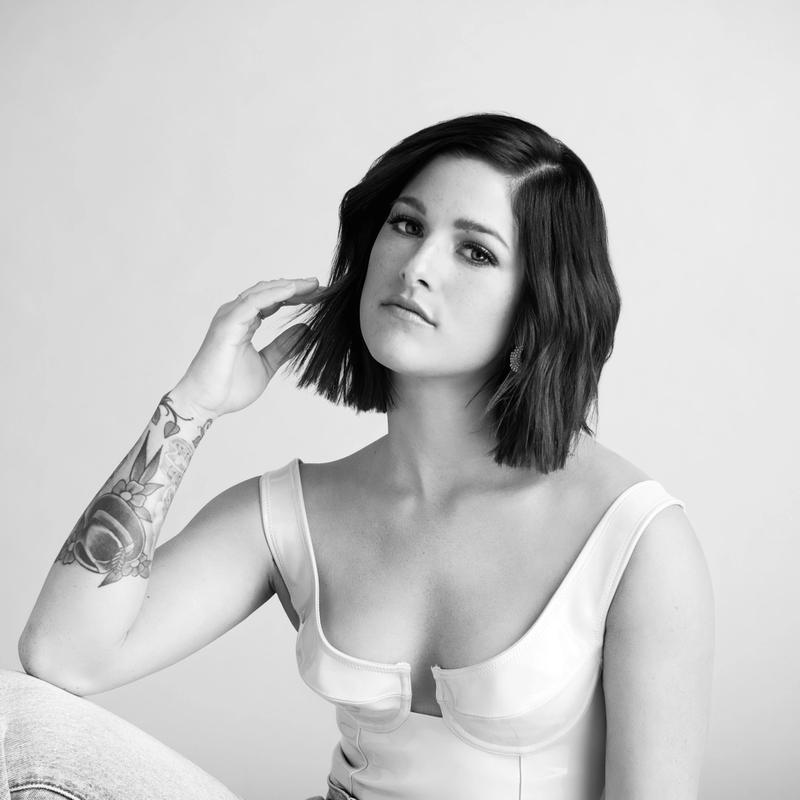
In your position, challenging a festival organiser in that way can only have a positive impact in encouraging other artists to do the same.
Yeah. I definitely have some confidence that I'm not the only one doing it. Also, it's in everyone’s best interest to diversify - you're going to widen your demographic by making it a safe space for everybody and getting more fans to come because they're being represented. There's only good that comes out of creating a more inclusive space. I just hope when things open back up, and we're touring more, everyone puts their money where their mouth is, because at this point, it's all been virtual – it’s all talk, let’s see it actually come to fruition.
Musically, do you think country is diversifying its sound?
Yeah, I think the music is. There are more versions of country music now than there ever was, it feels like it's expanding. There's a lot of genre mixing; artists outside the country genre are coming in to collaborate and I think that that's amazing. It’s normalising the idea of country music sounding and looking different. Obviously, we got to a place where country music was known and expected to look and sound a certain way, so I think it's great that we're starting to expand and making it cater to all different kinds of people.
You’ve been developing your own sound as well – you’ve definitely got some punky, drop-d guitar on ‘What The Stars See’ there, for example. I didn’t expect it, but I love it.
I definitely got in my own head for a while with the idea of criteria. I wanted so badly to get a country radio number one and get on that big amphitheatre country tour - I wanted these things so badly that it hindered my creative process. I'm so grateful for the success I've had - I'm not saying I've been this struggling artist that's not had any success. I've had my moments of struggle, but the stillness of 2020 and the time to reflect really helped me understand where I wanted to go with this next chapter, and allowed me to focus on what makes me happy. What makes me happy is pop punk music and an amazing country song - they are super important to me, have shaped me as a person, writer, artist and performer. So, I finally came to the place where I thought, "Screw it, I'm gonna do that".
I've realised, with this project, what allows you to totally dive into what you’re doing in that moment is knowing you could go in a completely different direction the next time, and that's okay. Maybe in the past, I would have thought, “If I go pop punk, then people might be weirded out if I go back to country with the next record - I don't want to confuse people”. That watered down my process. Whereas now, I'm going to commit to this because that is what I feel through and through. Then maybe my tastes will change by the next record. That shouldn't be a fear or a driving force behind what I create in the moment.
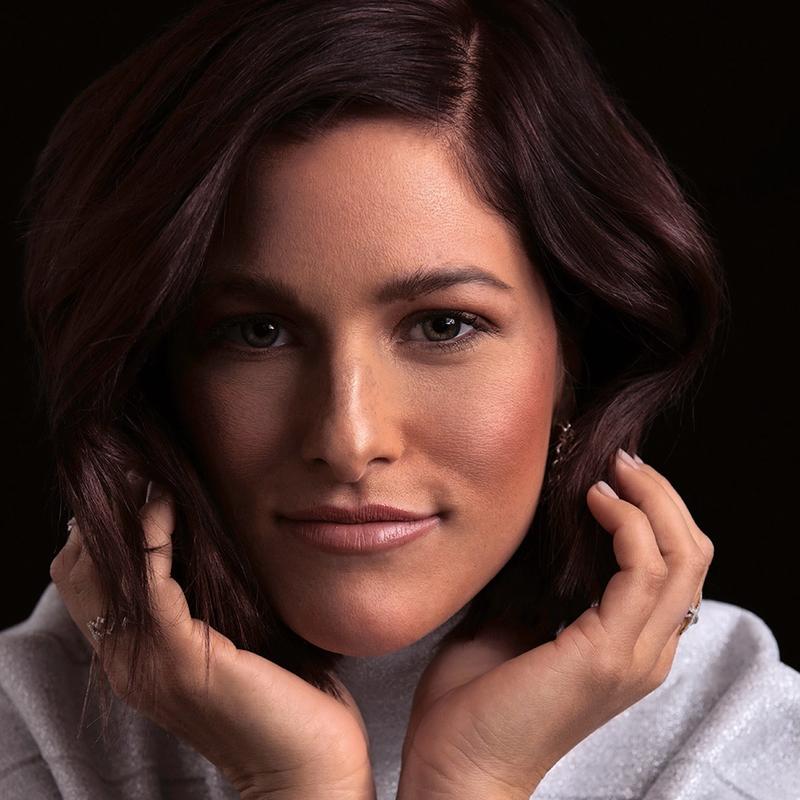
That’s exactly it – you shouldn’t have to worry about how your music is perceived ahead of time, you should be able to approach it how you wish. That’s what makes it authentic.
When I was a kid, I was like, “I'm never getting married, because I don't want to share my money and I don't want to live with a boy - they are gross”. I'm not married now, but I definitely want to get married someday, and I'm living with a man. Why can’t the creative process change like that? I'm going to change my mind about things – I’m a human.
This is something that’s intrigued me – ‘What The Stars See’, while being a real poppy anthem, is also quite existential; almost spiritual, you might say. Are you a spiritual person?
Yeah, I’m spiritual. I'm definitely not as well versed in that part of my existence, but I do believe that there's something that sees people and their most intimate and private moments that we can't see. I was outside one night before a session, I took a look at the stars and thought, “God, their perspective is amazing, they can see everything that I can't”. It made me think about the times I was in a break-up and I couldn't see what an ex was thinking or doing at that time. It could even be a friend you're not talking to anymore, or a family member that you’ve fell out of touch with - people that you're used to knowing everything about that you don't anymore. I thought it would be fun to balance that with a very in your face track, because it is such a vulnerable and revealing lyric. It's something we’ve all felt, and it's empowering but not in an obvious way. That's what I love about it – this project is so sentimental and personal to me.
Cassadee Pope's new single 'What The Stars See', featuring Karen Fairchild of Little Big Town and Lindsay Ell, is out now via Awake Music. Watch the new video for the single below.


